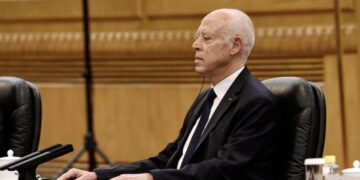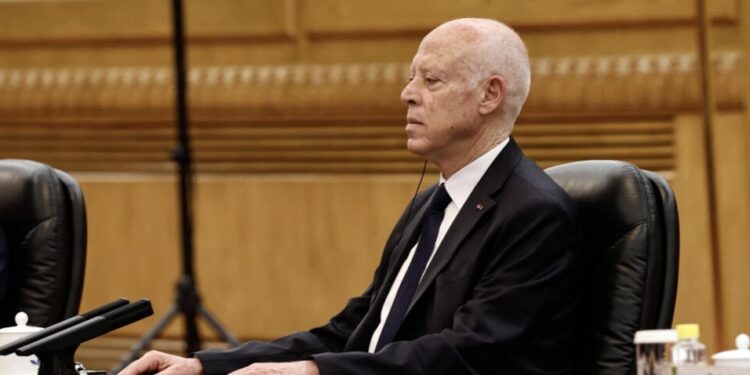By Enyichukwu Enemanna
President of Tunisia accused of desperately attempting to intimidate opposition leaders has announced his decision to join in the October 6 presidential election.
Kais Saied elected in 2019 said he would seek a second term in office “to continue the national liberation struggle.”
In a video on the presidency’s Facebook page on Friday, the 66-year-old Tunisian leader who has ruled by decree since suspending parliament in July 2021 said he was answering the “country’s sacred call” which left him no choice but to run for a second term.
“I officially announce my candidacy for the October 6 presidential election in order to keep up the fight in the battle for national liberation,” Saied said.
Saied also called on “everyone preparing to sponsor (candidates) to steer off any corruption”.
Heritage Times HT reports that several of those squaring up to challenge Saied’s candidacy are either in prison or being prosecuted.
A court had on Friday jailed opposition leader Lotfi Mraihi, a potential presidential election candidate, to eight months in prison on a charge of vote buying.
The court also banned Mraihi, leader of the Republican Union Party and one of the most prominent critics of President Kais Saied, from running in presidential elections for life.
He had been arrested on July 3 over suspected corruption.
Also, Abir Moussi, a vocal critic of Saied and head of the Free Destourian Party, has been jailed since October last year.
Her party is often described as nostalgic for the autocratic era of independence hero Habib Bourguiba and his successor Zine El Abidine Ben Ali.
Issam Chebbi, a leader of the main opposition National Salvation Front who was arrested in February 2023 for “plotting against the state”, dropped out of the race on Thursday, his party said.
Abdellatif Mekki, a former health minister and leader of the Islamist-inspired Ennahdha movement, who now heads the Amal w Injaz party, also said last month he was withdrawing his candidacy.
After dissolving the National Assembly in 2021, the opposition accused Saied of coup.
In response, he said his steps were legal and necessary to end years of rampant corruption among the political elite.




































